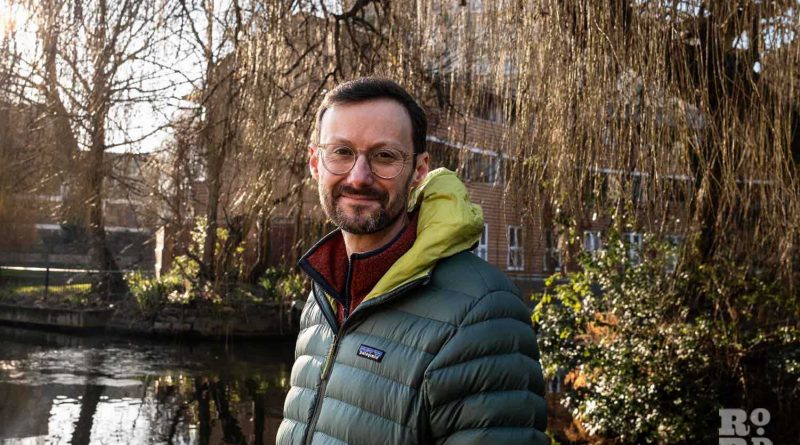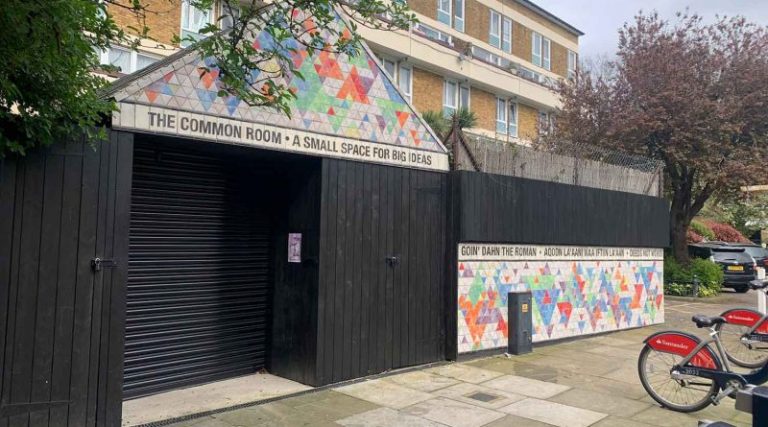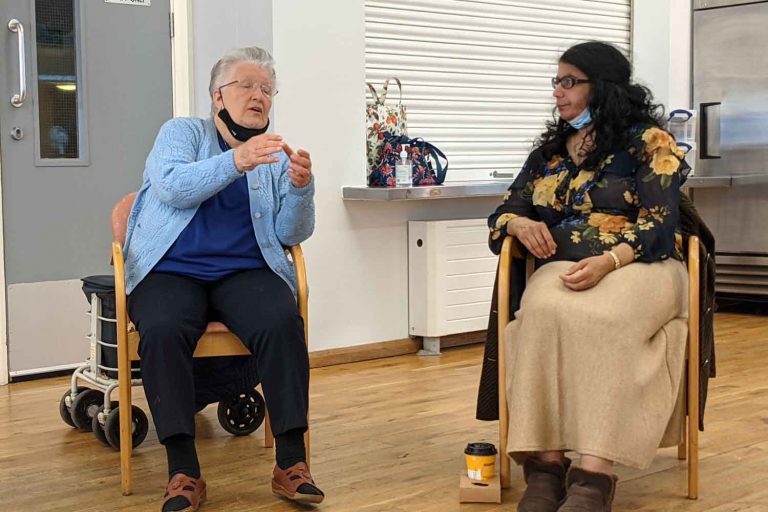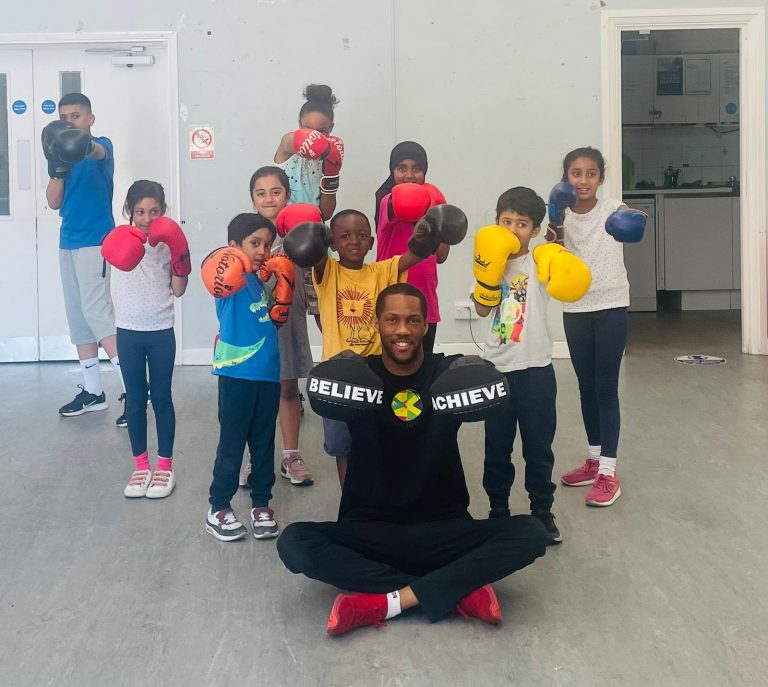Investor Paul Miller on how ‘tech for good’ can solve global injustice
‘I have always thought there was something potentially magical about tech’: Bow-based impact investor Paul Miller on how technology can combat social inequality in the East End.
Paul Miller is an investor on an honourable mission. The 44-year-old believes in the power of technology to combat complex problems, from repairing our planet’s delicate ecosystem and eliminating food waste to democratising healthcare. Miller certainly has ambitious plans for the globe, but does his work reach the streets of Bow?
In 2012, Miller and managing partner Melanie Hayes co-founded Bethnal Green Ventures (BGV), shaping it into Europe’s leading early-stage ‘tech for good’ venture capital firm. The company invests in start-ups that answer climate change and social inequity with digital solutions.
As an impact investor, Miller isn’t particularly impressed by the next glossy smartphone, flying car or humanoid AI. BVG exclusively engages in socially conscious investment: if the product doesn’t lead to a more equal and sustainable world, Miller isn’t interested.
If Miller invests with compassion, he also exudes genuine warmth in person. He expresses how his passion for global justice came from his mother and father, who spent periods of their youth in Malawi and Romania advocating for social change. Miller said:
‘I didn’t think it was unusual at the time, but a lot of my friends and family growing up were proper activists. I learnt a lot from one man I knew as an early teenager. It was only later that I realised he was one of the key figures in the Anti-Apartheid movement.’
Since moving to Bow in 2010, Miller has integrated into the local community as a professional as well as a neighbour. He was a trustee of GoodGym for nine years, supporting the charity on its mission to connect older and younger generations through exercise and community work. When Miller’s not working, he’s a frequenter of Palmers Restaurant and Symposium. He said:
‘There’s all sorts of interesting art and music and businesses around here. I enjoy seeing how people are setting up new cafes based on social media along the Roman Road. I love Victoria Park – one of the great things about living here is the green places.’
Miller’s firm grew up in the heart of the East End, spawning out of community-based events at the former Young Foundation in Victoria Park Square throughout 2008. He hosted ‘hack weekends’ bringing together locals, programmers, designers and business people eager to enter the world of ethical start-ups.
It was no coincidence that BVG was born in the Young Foundation, a building steeped in a history of social activism. Before it was renamed in his honour, the Young Foundation was once Michael Young’s Institute for Community Studies set up in 1953. Young was a British sociologist, politician, and activist – a ‘serial social entrepreneur’, as Miller says, who dedicated his career to supporting the deprived, working-class residents of post-war Bethnal Green.
During Miller’s ‘hack weekends’, budding socially-conscious entrepreneurs were itching to ditch their day jobs and launch their start-ups, but they needed that first investment. Inspired by Young and realising the untapped potential around him, Miller launched BGV to fund a new generation of ethical founders.
But the truth is, if you understand a particular problem really well, and if you can empathise with people, you’re in a better position to create a successful product than somebody who’s already a millionaire or billionaire.
PAUL MILLER
Miller’s firm may have spawned in the heart of the diverse East End, but the broader tech and investment world is often perceived as inaccessible, riddled with gender and racial disparities. According to a survey by Startup Genome in 2023, only 15% of tech founders are women. Meanwhile, Black tech workers earn 15% less than their white colleagues, according to a 2020 study by Hired.
As the CEO of a venture capital firm, Miller is aware that he belongs to an opaque industry, not generally associated with being a cradle of radical social change. ‘I think the venture capital world and the tech world have done quite a good job of making themselves look super exclusive’, he says.
‘But the truth is, if you understand a particular problem really well, and if you can empathise with people, you’re in a better position to create a successful product than somebody who’s already a millionaire or billionaire.
‘They don’t have the grit or understanding of how to solve the problem. You’ve got something that the tech and investment world don’t have, and you should use that to your advantage.’
In BGV’s next round of investments, Miller is committed to funding at least 50 tech start-ups founded by women. While Miller is intent on diversifying the tech industry, what about the low-income consumers, who find themselves disenfranchised by digital exclusion?
In Tower Hamlets, 56% of children live in poverty, and almost half of the borough’s population are born outside of the UK, according to the 2021 census, leaving some migrants vulnerable to housing discrimination and financial exclusion based on language barriers. Could novel technology change the lives of these people?
‘We can’t solve policy issues, but technology can sometimes change the economics of systems, making it easier for people to come up with alternatives if policies are pushing them out of something.
‘If you’re a refugee, there’s all sorts of barriers to you getting a bank account. But what if you could fill out an application form in your native language, using your voice? In this case, tech has helped you overcome those barriers.
‘I think up to now, the problem has been that a lot of financial technology is from the perspective of a bank, thinking, “How do we solve the problems of the bank?”. But I’d rather ask: “How do we solve the problems of those excluded from the financial system?”’.
So far, Miller has invested in 177 ventures dedicated to developing technology that combats the intricate issues boroughs like Tower Hamlets face. From apps geared towards preventative healthcare and supporting the mental health of neurodiverse people to sustainable fashion brands, Miller is funding start-ups that serve vulnerable people and the planet.
In his portfolio, you’ll find AngryMonk, a company that tackles food waste, and TaskHer, the only online booking platform dedicated to showcasing women in the trade industry.
Miller might believe in the importance of sustainable investment, but he can’t control our political landscape. In the wake of Prime Minister Rishi Sunak’s net zero U-turn and a disappointing United Nations Climate Conference, regulatory pressure towards more green tech seems to be lowering. Even with the prospect of another Donald Trump presidency, Miller remains optimistic:
‘I hope Trump doesn’t get elected again, but I honestly don’t think it’ll change anything. The direction of travel is towards renewables, and towards tech that lowers emissions.
‘Trump wouldn’t be good for the social implications of sustainability, but the environmental direction of travel is now very positive. It’s more about the pace of change than whether change will happen.
‘If you can do something that lowers carbon emissions, or that preserves biodiversity, or increases the efficiency of water, fundamentally that’s going to be really big business and valuable for the future.’
Recently, environmental campaigners in Tower Hamlets have expressed disappointment following Mayor Lutfur Rahman’s decision to scrap the Low Traffic Neighbourhood (LTN) road closure scheme in September 2023. About Rahman’s controversial move, Miller said:
‘My personal view is, I think any area benefits from active travel – walkability, cyclability, roller skate-ability, whatever you want it to be. Getting rid of those things is crazy.’
Some people view Aspire’s decision to backtrack on LTNs as a regression in green politics, implying a lack of willingness to strategise about a sustainable future. While politicians might waver in their commitment to green policies, the East End is full of environmental activists putting pressure on the local council. About the grassroots culture of East London, Miller said:
‘I love watching how people adapt to new challenges, and the East End is a massive source of that. Everybody is trying to do something new that pushes things. I feed off that, I can’t imagine living anywhere else.’
If you enjoyed this piece, you might like our article about the postpartum depression survivor offering a lifeline to new parents in Tower Hamlets.








